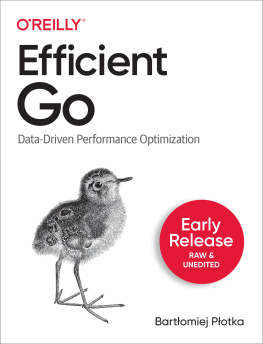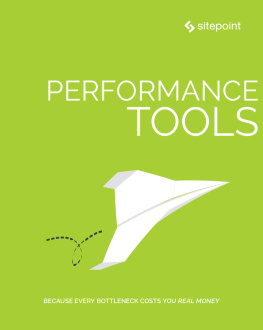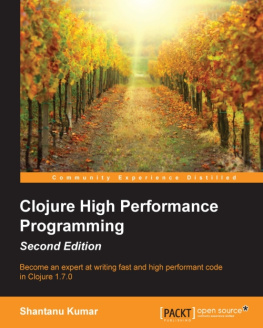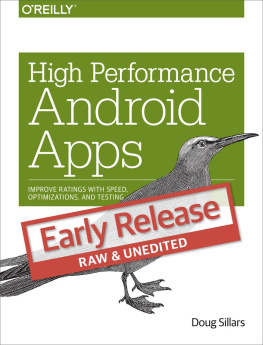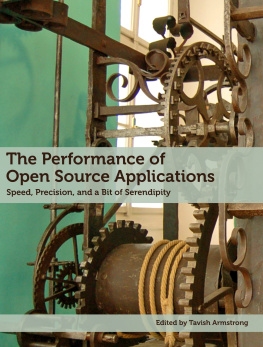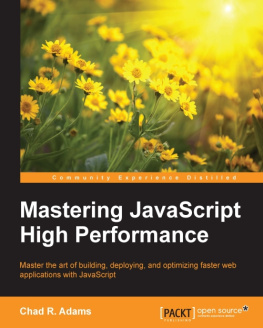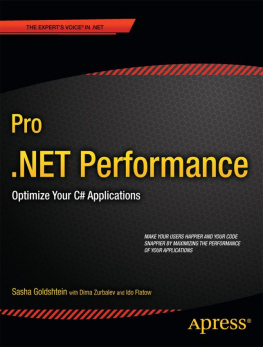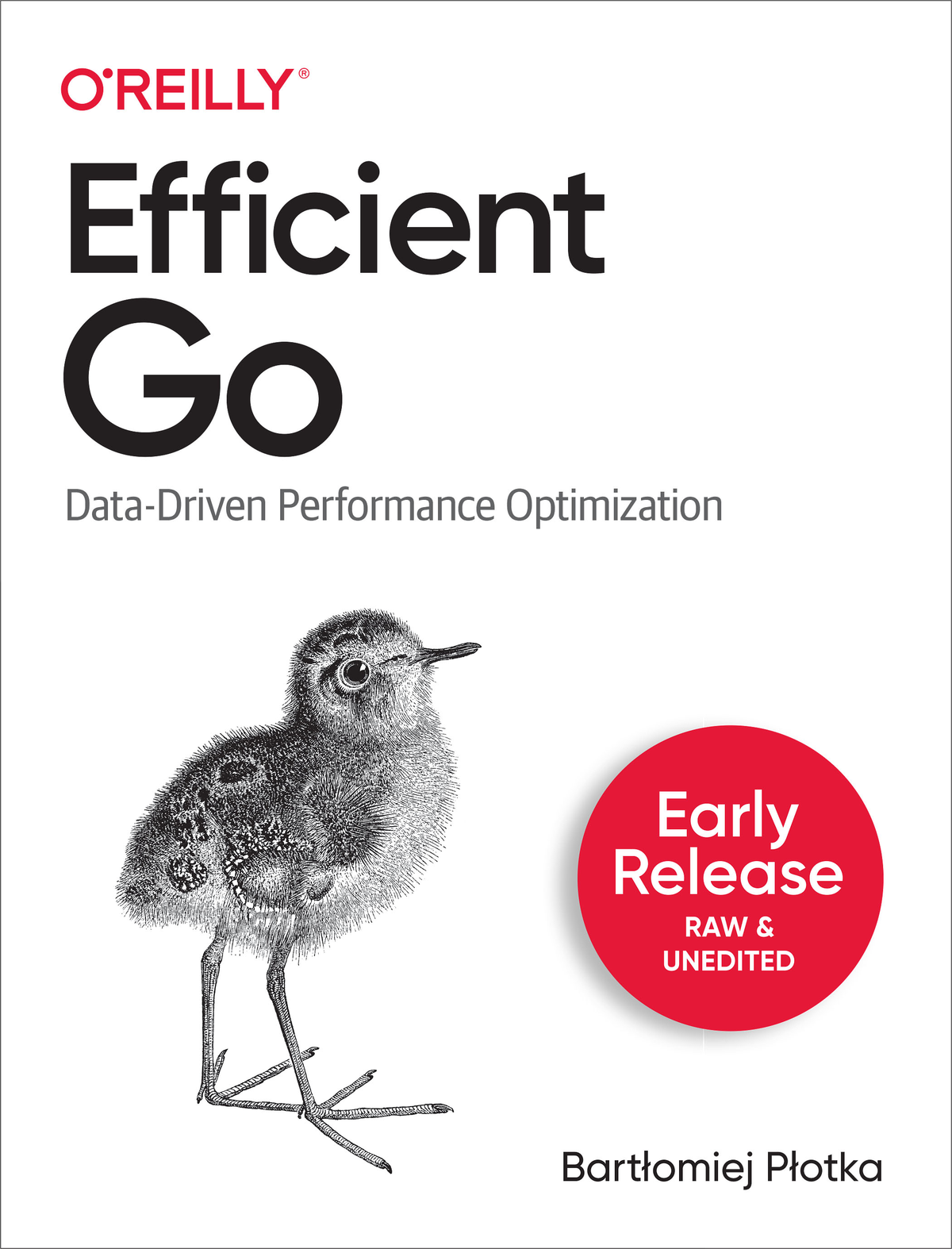Chapter 1. Software Efficiency Matters
A Note for Early Release Readers
With Early Release ebooks, you get books in their earliest formthe authors raw and unedited content as they writeso you can take advantage of these technologies long before the official release of these titles.
This will be the 1st chapter of the final book. Please note that the GitHub repo will be made active later on.
If you have comments about how we might improve the content and/or examples in this book, or if you notice missing material within this chapter, please reach out to the author at .
The primary task of software engineers is the cost-effective development of maintainable and useful software.
Jon Louis Bentley, Writing Efficient Programs (1982)
Even after 40 years, Jons definition of development is fairly accurate. The ultimate goal for any engineer is to create a useful product that can sustain user needs for the product lifetime. Unfortunately, nowadays, not every developer realizes the significance of the software cost. The truth can be brutal; stating that the development process can be expensive might be an underestimation. For instance, it took five years and 250 engineers for Rockstar to develop a popular Grand Theft Auto 5 video game, which was estimated to cost $137.5 million. On the other hand, to create a usable, commercialized operating system, Apple had to spend way over $500 million before the first release of macOS in 2001.
Because of the high cost, when producing software, its crucial to focus our efforts on things that matter the most. Ideally, we dont want to waste engineering time and energy on unnecessary actions, like spending weeks on subjective code refactoring that does not reduce code complexity or deep micro-optimizations of the function executed rarely. The industry is continually inventing new patterns to pursue an efficient development process. Agile, Kanban methods allowing to adapt to ever-changing requirements, specialized programming languages for mobile platforms like Kotlin, or frameworks for building websites like React are only some examples. Engineers innovate in those fields because every inefficiency increases the cost.
What makes it even more difficult is that when developing software now, we should also be aware of the future costs. Running and maintenance cost .
At this point, based on the title Efficient Go, you might be asking how this book will motivate you to spend more of your precious time on software execution performance characteristics like speed or efficiency. If we, software creators, should care, as Jon wrote, about development cost-effectiveness, why not focus purely on the bare minimum needed for the software to work? Waiting a few seconds more for application execution never killed anyone. On top of that, the hardware is getting cheaper and faster every month. In 2021, its not difficult to buy a smartphone with a dozen GBs of RAM. Finger-sized, 2TB SSD disks capable of 7 GB/s read and write throughput are available. Even home PC workstations are hitting never before seen performance scores. With0 8 CPUs or more that can perform billions of cycles per second each and with 2TB of RAM we can compute things fast. After all, improving performance on the software level alone is a complicated topic. Especially when you are new, it is common to lose time optimizing without significant program speedups. And even if we start caring about the latency introduced by our code, things like Java Virtual Machine or Go compiler will apply their optimizations anyway. Overall, spending more time on something tricky like performance that can also sacrifice our codes reliability and maintainability may sound like a bad idea. These are only a few of the numerous reasons why typically engineers put performance optimizations on the lowest position of the development priority list, far in the outskirts of the mentioned software bare minimum.
Unfortunately, as with everything extreme, there is a risk in such performance deprioritization. In essence, there is a difference between consciously postponing optimizations and making silly mistakes causing inefficiencies and slowdowns. However, dont be worried! I will not try to convince you in this book that all of this is wrong, and you should now measure the number of nanoseconds each code line introduces or how many bits it allocates in memory before putting it in your software. You should not. I am far from trying to motivate you to put a performance on the top of your development priority list. Instead, I would like to propose a subtle but essential change to how we, software engineers, should think about application performance. It will allow you to bring small but effective habits to your programming and development management cycle. Based on data and as early as possible in the development cycle, you will learn how to tell when you can safely ignore or postpone program inefficiencies. And when you cant afford to skip performance optimizations, where and how to apply them effectively, and when to stop.
Machines have become increasingly cheap compared to people; any discussion of computer efficiency that fails to take this into account is short-sighted. Efficiency involves the reduction of overall cost - not just machine time over the life of the program, but also time spent by the programmer and by the users of the program.
Brian W. Kernighan and P. J. Plauger, The Elements of Programming Style (1978)
In I will teach you why particularly efficiency will allow us to think about performance optimizations effectively without sacrificing time and other software qualities. This chapter might feel theoretical, but trust me. Those insights will train your essential programming judgment on how and if to adopt particular efficiency optimizations, algorithms, and code improvements presented in Part 3 of this book. This chapter is also fully language agnostic, so it should be practical for non-Go developers too!

